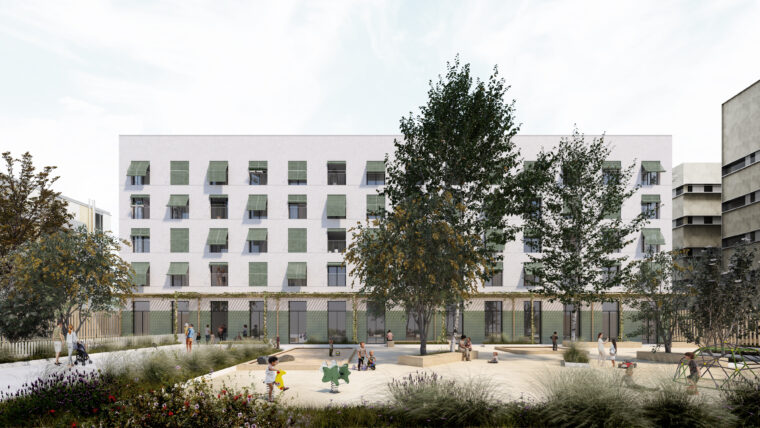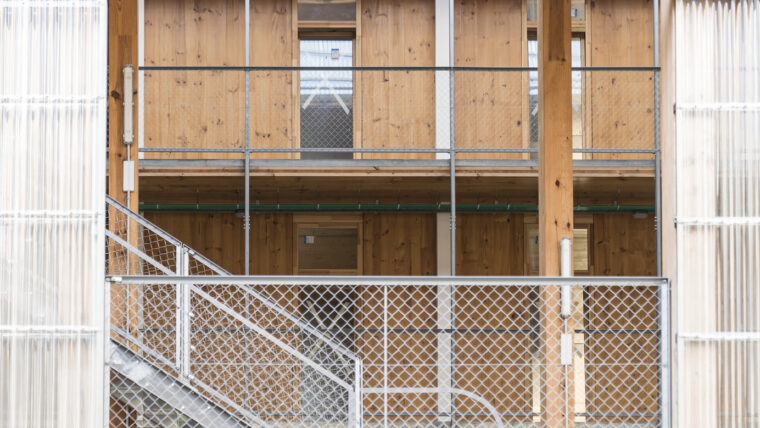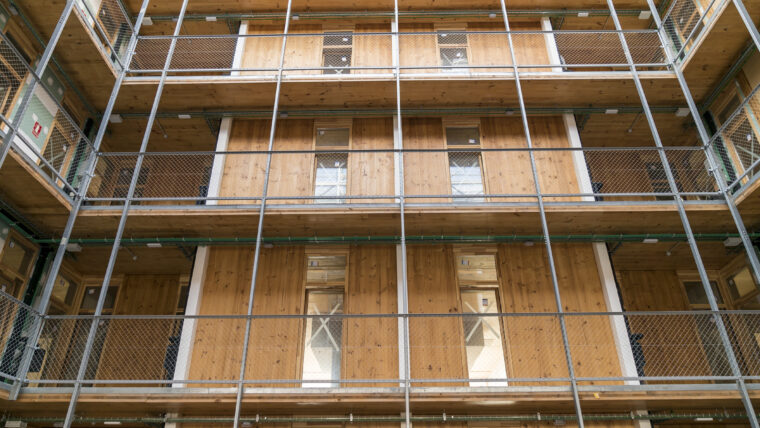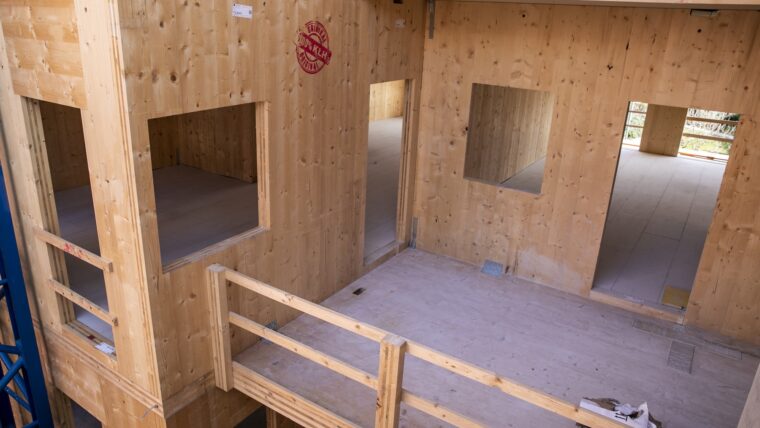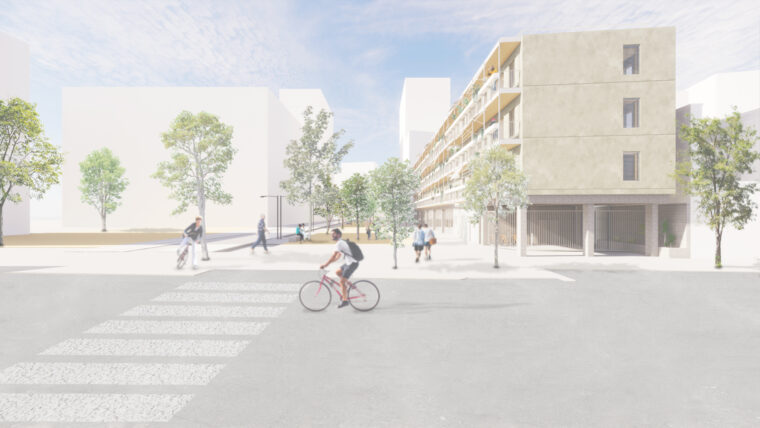Industrialised construction for more sustainable housing
Work gets under way on six buildings using industrialised construction methods, five of which will be built with wood to gain numerous environmental and sustainability advantages. This building technique shortens construction time and reduces the environmental impact of housing during its lifespan.
The new industrialised buildings made from wood are in Sant Martí, in the streets of Pallars (42 flats), Binèfar (24 flats) and Dolors Iturbe (40 flats), and in Sant Andreu, with two blocks of 70 and 56 flats at the Casernes site. A block is also being built in C/ Marroc, regaining concrete with a three-dimensional module of 45 flats. In all, the developments mean 277 new flats built with industrialised processes and to be offered with public rents well below market prices.
The flats being built through industrialised construction enjoy numerous environmental advantages, such as:
- lower energy demand for heating and cooling systems through passive measures (such as more insulation on the façade, protection of heat points, solar protection, intermediate spaces and natural cross-ventilation)
- a highly efficient centralised climate control system
- green rooftops which mitigate the effects of heat
- lower demand for water thanks to the reuse of wastewater
- generation of renewable energy through solar panels on the roof
- significant passive protection of façades, made using materials with a low environmental impact
All this improves the environmental performance of the buildings, helping to reduce their ecological footprint and improve the quality of life of future tenants.
The buildings are an evolution from the APROP temporary housing modules, which were the city’s first step towards buildings with the lowest possible environmental impact as they are made with recycled shipping containers.

